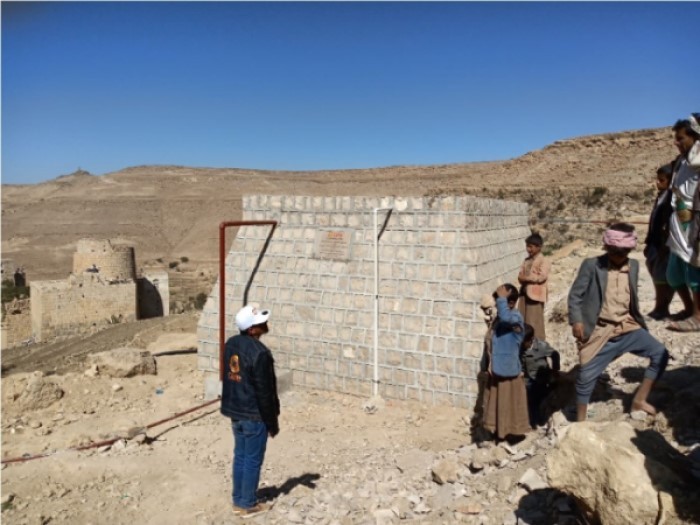Speeches Shim

2018-2021 • $5.1 million • Partners: CARE International; Responsiveness for Relief & Development Foundation; Charity for Human Development; Local Corporation of Water Supply & Sanitation; General Authority for Rural Water Supply Projects
Yemen is suffering from the worst humanitarian crisis in the world, derived from over five years of active conflict. Fighting has caused significant damage to essential infrastructure, including water and sanitation systems and health facilities. Access to basic services has been drastically reduced against a backdrop of increasing rates of food insecurity, malnutrition, the reemergence of cholera, and near complete economic collapse. About 18 million people have limited or no access to safe drinking water, sanitation, or hygiene services. As of January 2020, cholera affected all but one of the 23 governorates in Yemen, with more than 1.2 million suspected cases since January 2018, including 1,543 deaths.
PROJECT OVERVIEW
The Addressing WASH Services in Yemen project focuses on the most vulnerable internally displaced persons and host-community households in targeted districts and governorates. The project improves vulnerable populations’ access to adequate water and sanitation systems and increases their awareness and knowledge of hygiene practices. The project also builds the capacities of public and private service providers. At the household level, it promotes innovative water-saving methodologies, and in the agriculture sector, it supports sustainable water resources management. Under this project, water supply rehabilitation is expected to benefit 72,238 people; sanitation service improvements are expected to benefit 49,780 people; and hygiene promotion sessions are expected to reach 280,329 people. Addressing WASH Services in Yemen is expected to increase access to water, sanitation, and hygiene (WASH) services for over 560,658 indirect beneficiaries.
OBJECTIVES
- Vulnerable Yemenis have improved access to safe water and improved sanitation services in targeted areas
- WASH institutions and service providers are strengthened and able to sustainably operate and manage WASH services and facilities in targeted area
- Research and pilot-testing of innovative methodologies and technologies promote sustainable and adequate WASH services.
ACTIVITIES
OBJECTIVE 1
- Rehabilitate water supply sources in targeted rural areas and support urban water authorities with operation and management supplies to improve access to safe drinking water.
-
Rehabilitate/construct latrines and sewerage networks, map existing solid waste management facilities, and provide operations and management supplies and technical expertise in selected urban areas to increase access to safe and adequate sanitation services and facilities.
-
Improve hygiene knowledge and practices by training community-level hygiene promotion volunteers, delivering hygiene promotion activities focused on social norms and behavioral change, and developing and distributing related information, education, and communication materials.
OBJECTIVE 2
- Reestablish Community Water Committees (CWCs) to enhance service providers’ knowledge of sustainable WASH programs; help Local Corporation of Water Supply and Sanitation and General Authority for Rural Water Supply Projects to train and regulate private water truckers and vendors.
-
Engage 320 women’s and youth groups in awareness-raising initiatives promoting sustainable WASH services management through the CWCs by conducting WASH-related social marketing activities in target locations and organizing a contest promoting innovative solutions to sustainable management of solid waste and sustainable use of water.
OBJECTIVE 3
-
Give 5,797 vulnerable households in rural areas access to water-saving mechanisms for domestic use and 5,797 farming households access to water-saving technologies for agricultural use.
-
Pilot and promote at least four cost-recovery mechanisms to ensure adequate management and maintenance of water supply facilities. Collaborate with other organizations under the WASH Cluster on national-level lessons learned/best practices for setting user-fee systems.

Comment
Make a general inquiry or suggest an improvement.